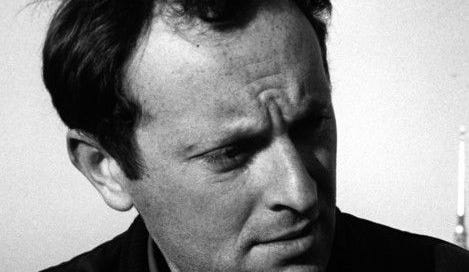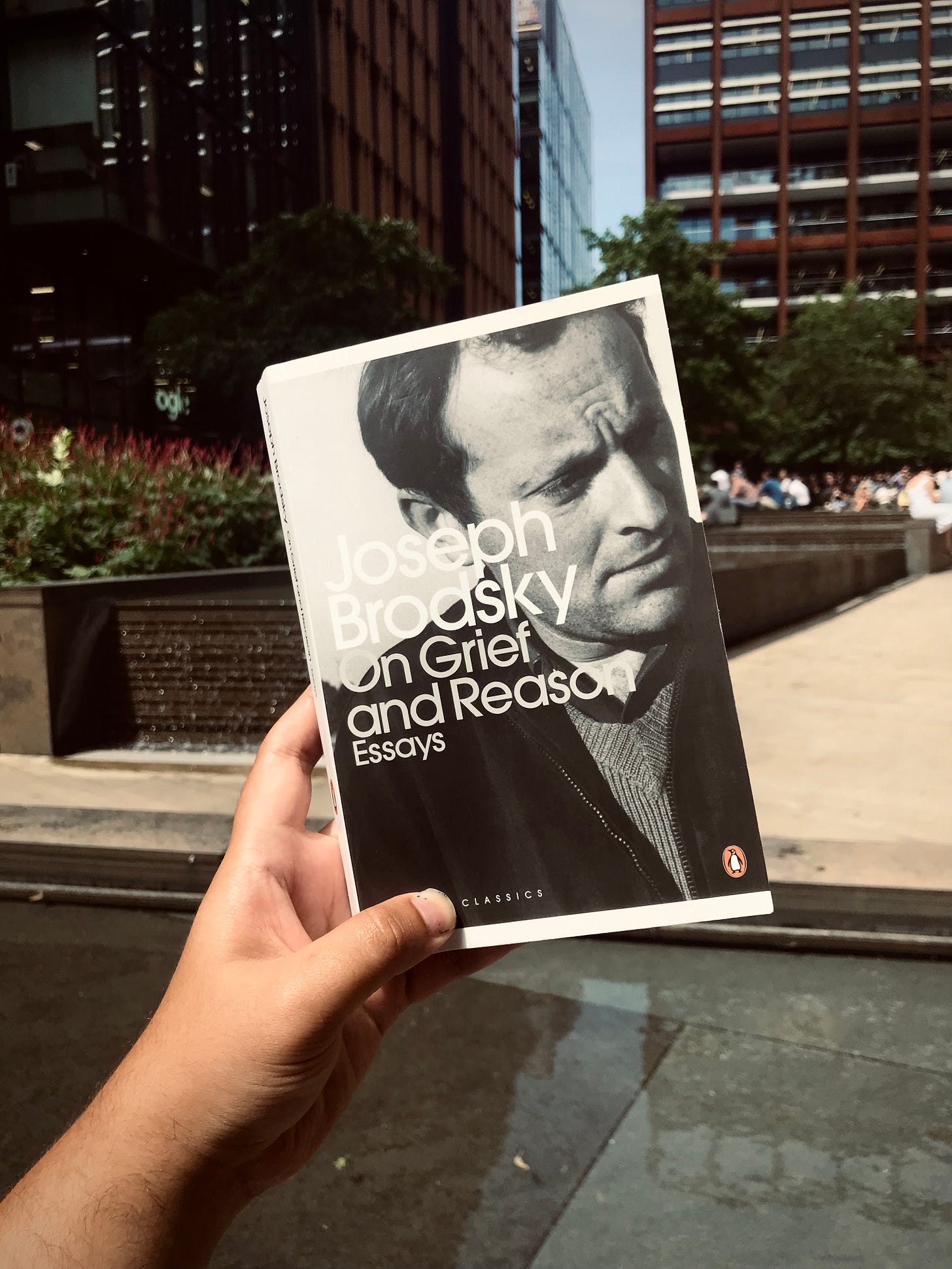“[T]he longer you stay skeptical, doubtful, intellectually uncomfortable, the better it is for you.”
― Joseph Brodsky
Russian fatalism is inspiring. It helps one to hover over the tragedies, absurdities and stupidities of life from the safe distance of self-detachment.
The actual distance to these three might feel either too far or too near. It can either be something that happened thousands of years or miles away from you; or it could be something that is happening right here right now in your family. That's why the word 'safe' is key in that sentence; it means you're detached enough to be able to reason, but in a distance safe enough not to become indifferent and stop caring.
That's Brodsky's style of looking at the world. Reading Brodsky doesn't feel like reading at all; it feels like a conversation with an incredibly cultured and cultivated man about everything important in your and his life. I spent most of the time with him during my lunchtime. And it was a pleasure to sit next to the fountains outside my office, for an hour every working day, and hear the water and Brodsky's thoughts flow through me. He told me about the true meaning of freedom, of individual sovereignty, of beauty of poetry, and of grief and reason.
He told me about his youth in Leningrad, when he and his friends dreamt deeply and daily about the Western freedom. They dreamt about it so intensely that 'maybe, the freedom that we achieved in our small circle in Leningrad, was bigger and better than [the freedom] offered in the West itself', Brodsky says. This made me wonder, can a person who never lived or never encountered Russia, fully understand what Brodsky means by this?
What is also incomprehensible about Brodsky is how a Russian poet managed to become a master of English prose. At a time when even access to Russian-English dictionaries was scarce in the USSR; Brodsky, a non-native English speaker, tamed the English language to a level that was accepted and worshipped by the leading authors of the time, like W.H.Auden, C.P. Snow, Spendler and others.
Can this be explained by his insatiable love for language? Undoubtedly. He spends pages dissecting and explaining why a poet Robert Frost used this word and not the other in his poems. Every word matters to a poet, because every word has a precise feeling. 'For a writer only one form of patriotism exists: his attitude toward language.' What is a poet other than a lover of language's intricacies?
While sitting and sipping my coffee next to the fountains during the lunch break, Brodsky taught me how to love language; and since we both share Russian as our native tongue and both taught ourselves English through Shakespeare and Milton - this conversation became very intimate. He was exiled from Russia and I, though not exiled but living far from home, felt a close connection to his often bitter feelings about our homeland. For both of us, the Russian language acts as a shield against the melancholic nostalgia for the homeland we left. It's what keeps us connected not to the physical place or its politics, but to what it truly embodies - a powerful, paranoid, exceptional, and undefeatable culture. From Pushkin and Tchaikovsky to Mandelshtam and Shostakovich.
There are a lot of digressions in this review as there were a lot of digressions in Brodsky's prose. But they always connect or reveal something deep and subconscious. I can't think of an English poet (or an author) who mastered Russian to the level Brodsky mastered English. And if English is your native tongue - you must read Brodsky to realise that the bridges between civilisations are not built by bricks, but are built by words.
Confide tibimet
This article was originally published on Goodreads in May 2019.
I was inspired by Brodsky’s essays and his words resonated deeply within my heart at that time.
There were some minor stylistic and grammatical corrections I had to make, but the rest of the piece stands in the way it was written five years ago.






Vashik, this was an excellent essay. You've moved me to go back to my shelves and find my Brodsky. Thank you.
Thank you for this read! I didn't read "On Grief and Reason: Essays" yet (it seems, I should🙂), but I love his poetry.
I find myself thinking lately that the poetry falls into two kinds - one that flows harmoniously, beautifully, melodically; and one that speaks harshly, sternly and powerfully like a voice that tears the heavens apart. This is the poetry of Joseph Brodsky, this is his voice. There are individuals who speak so strongly about themselves that any attempt to summarize or explain them seem incomplete. So it is with Brodsky. These personalities and their work implies only one thing - the self-reflection of the reader.
It was a pleasure to read your thoughts about Brodsky and your "close connection to his often bitter feelings about our homeland"!